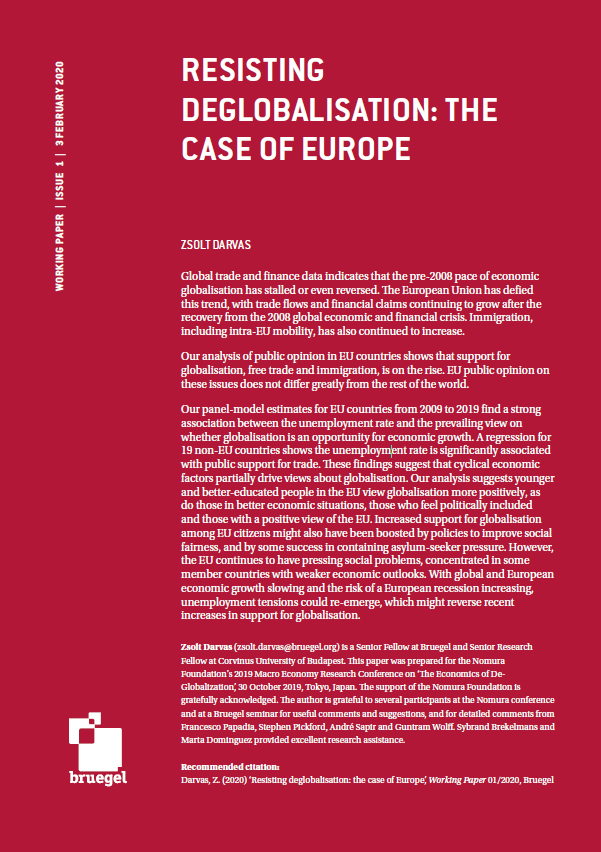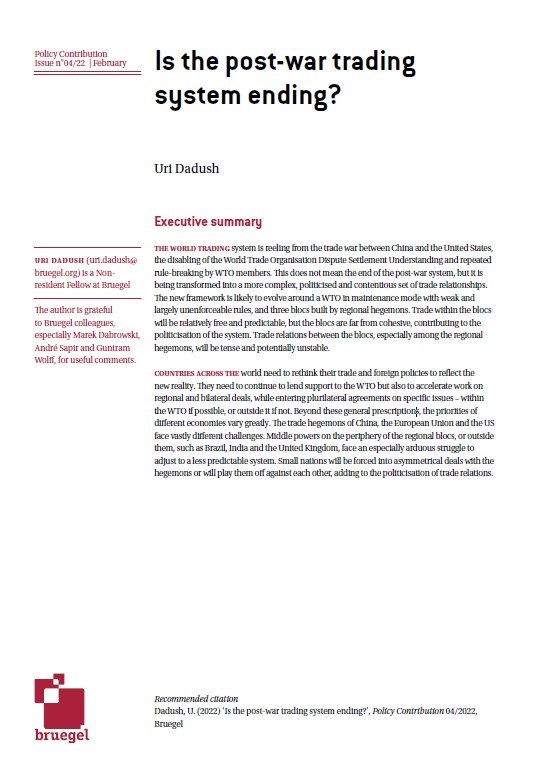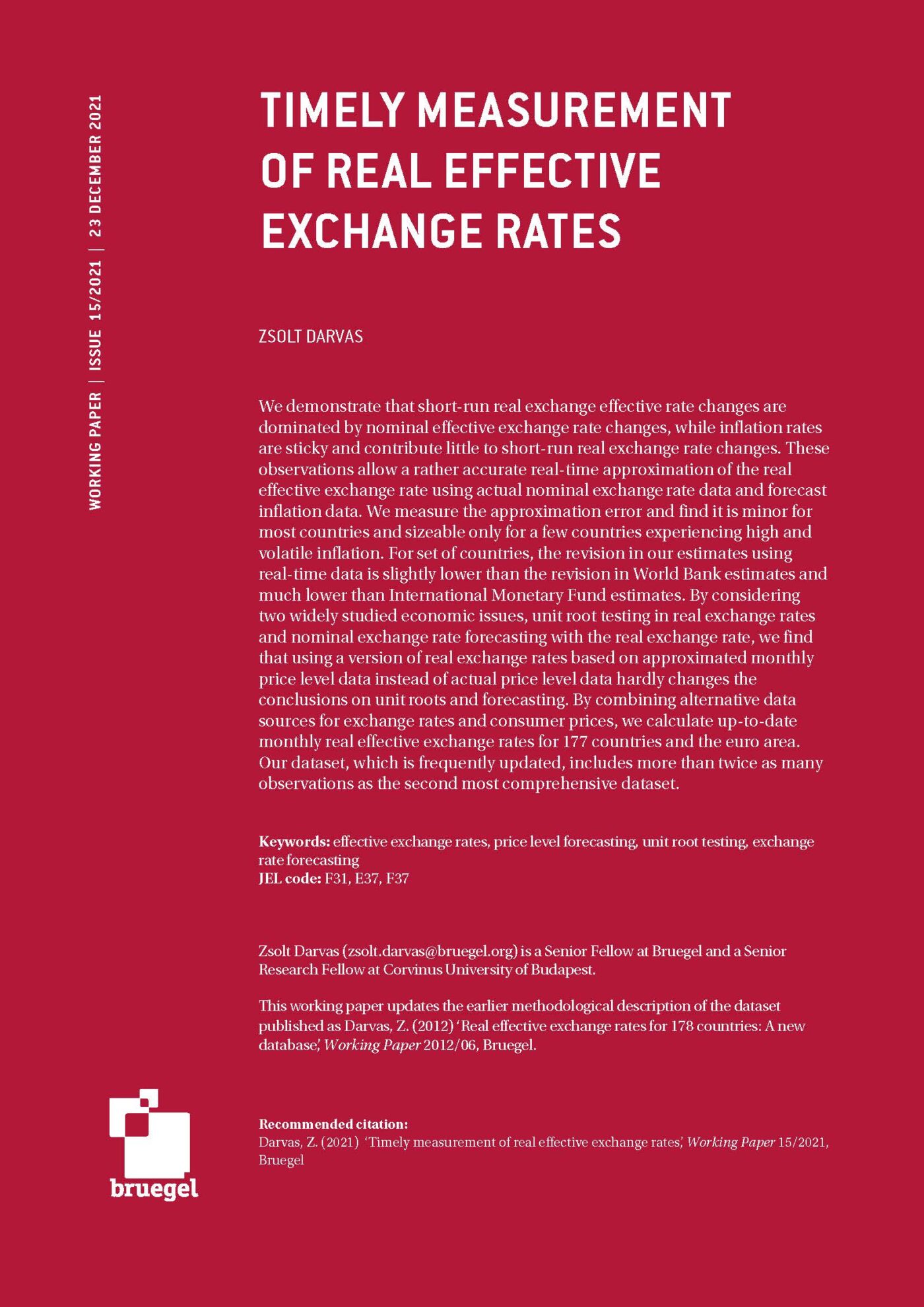Working Paper
Resisting deglobalisation: the case of Europe
Global trade and finance data indicates that the pre-2008 pace of economic globalisation has stalled or even reversed. The European Union has defied this trend, with trade flows and financial claims continuing to grow after the recovery from the 2008 global economic and financial crisis. Immigration, including intra-EU mobility, has also continued to increase.
Our analysis of public opinion in EU countries shows that support for globalisation, free trade and immigration, is on the rise. EU public opinion on these issues does not differ greatly from the rest of the world.
Our panel-model estimates for EU countries from 2009 to 2019 find a strong association between the unemployment rate and the prevailing view on whether globalisation is an opportunity for economic growth. A regression for 19 non-EU countries shows the unemployment rate is significantly associated with public support for trade. These findings suggest that cyclical economic factors partially drive views about globalisation. Our analysis suggests younger and better-educated people in the EU view globalisation more positively, as do those in better economic situations, those who feel politically included and those with a positive view of the EU. Increased support for globalisation among EU citizens might also have been boosted by policies to improve social fairness, and by some success in containing asylum-seeker pressure. However, the EU continues to have pressing social problems, concentrated in some member countries with weaker economic outlooks. With global and European economic growth slowing and the risk of a European recession increasing,
unemployment tensions could re-emerge, which might reverse recent increases in support for globalisation.
Recommended citation
Darvas, Z. (2020) ‘Resisting deglobalisation: the case of Europe’, Working Paper 01/2020, Bruegel











